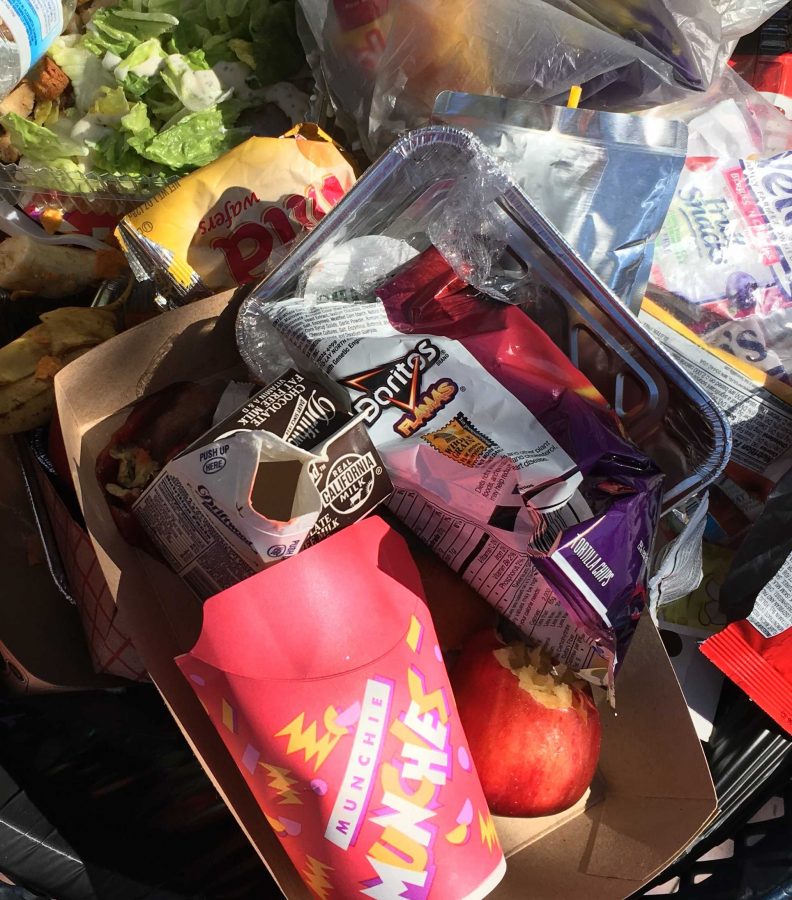How Wasteful The World Has Become
The Key To Solving Famine
An uneaten salad, half a banana, unfinished chocolate milk, and an apple barely touched.
October 12, 2016
According to the Food and Agriculture Organization around the globe, 1.3 billion tons of food are wasted every year. The vast amount of food wasted could feed another one-third of our planet, yet with all the excess food one-eighth of humanity suffers from starvation and malnutrition (Action Against Hunger Organization).
So why exactly are some people of the human race starving when we enjoy such a staggeringly large allowance of food? Statistics show that developed countries are usually the ones to mishandle food. According to BBC in Europe, around 100 million tons of food are wasted annually, while 40% of all food produced in America become wasted. While we squander our nutrition, the famished countries do not get to pick after our scraps; they simple starve. The key to solving world’s starvation is even distribution.
Across our nation and others, food is constantly wasted. From schools to households, everyone is responsible. As reported by the LA Times food wasted by students in school accounts for 10% of our nation’s squandering. In our second largest district in America, 100,000 dollars worth of food are tossed out each day. While students disregard the proper consumption of food at school, adults practice the same habits at home. The average american throws away 25% of the food and beverages they purchase (National Resources Defense Council).Each year, 800 million to 900 million fruits and vegetables are wasted. These millions of tons of healthy food are wasted because they are cosmetically unappealing. We discriminate against imperfect products. A potato not round, a carrot not straight, or a banana slightly bruised are immediately eliminated. These simple cosmetic defects of the vegetations keep the produces our large industrial markets, instead they’re immediately tossed out (Washington Post). In fact because of this phenomenon, fruits and vegetables waste has become the most prominent type of food waste in our nation (Food and Agriculture Organization). Austin Chan (11) has the same issue, he finds,
“fruits that have gone brown repulsing, even though [he] always eats them.”
As we continuously disregard our food waste issue, starvation still remains a prevalent and pressing issue. According to the Environmental Protection Agency, 95% of food that we don’t consume is sent to landfills and combustion facilities. Ultimately, the once edible fuel of life degrades into nothing.
Instead of throwing away our food, we should send them to the less privileged. Next time you have unconsumed excess food, send them to a food bank. We all purchase extra boxes of cereals, excess food cans, or a surplus of cup noodles. For students of Yorba Linda High School, we have the opportunity to do good by sending food to the less privileged on the upcoming canned food drive; food that would be otherwise just add to the mountains of waste.






































